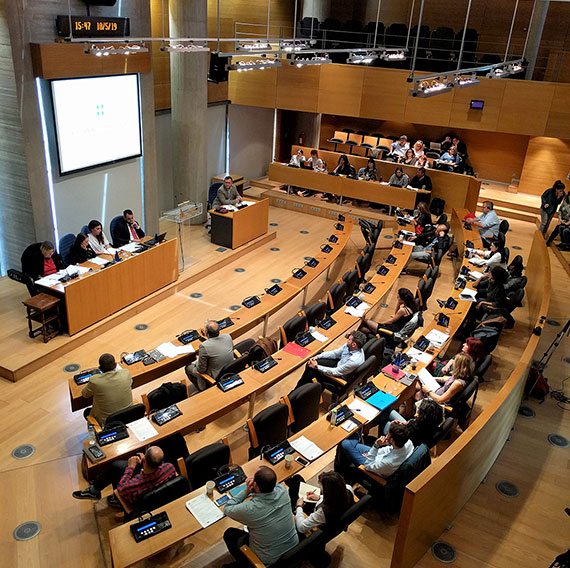The educational programme of the School of Political Studies in Greece consists of an annual cycle of seminars, participation in the Council of Europe World Forum for Democracy in Strasbourg, as well as capacity building training, and it aims at education, co-operation and dialogue among civil society, policy makers, experts and the media.
The main, long-term educational program of the School in Greece is the Annual Seminars, which are implemented in cooperation with the Council of Europe. The program of the seminars is designed to follow the basic orientation of the School – it focuses on human rights, anti-discrimination, social inclusion, democratic citizenship, freedom of expression, democratic governance, equality and gender-based violence, migration and protection of the environment. Often, the theme of these seminars are cross-cutting issues that come to meet other projects being implemented by the organization.
The annual cycle of seminars consists of a one-year cycle of educational activities, face-to-face, hybrid or digital, depending on conditions. The program envisages three national seminars, as well as participation in the World Forum for Democracy at the Council of Europe in Strasbourg.
The national seminars are of four-day duration and are organized at various locations in Greece to achieve national coverage and participation. The programme takes place through interactive lectures and workshops and is designed in a way that, in addition to intensive work, leaves time for mutual networking of participants. All seminars are held in accordance with the Chatham House rule, which allows for open debate with the lecturers and among the participants.
Symbiosis-School of Political Studies in Greece, also organises every year several capacity building seminars and workshops, aiming to increase skills and knowledge on specific topics and addressing local authorities, civil society activists, educators, intercultural mediators, humanitarian practitioners and other groups.


